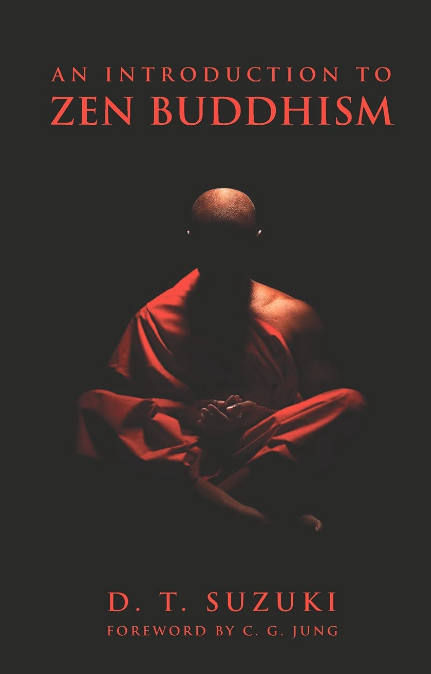Introduction to Zen Buddhism - Quotes | T.D. Suzuki

Lines of wisdom from Suzuki in his Introduction to Zen Buddhism:
- We teach ourselves; Zen merely points the way.
- The finger pointing at the moon remains a finger and under no circumstances can it be changed into the moon itself.
- Taking it all in all, Zen is emphatically a matter of personal experience; if anything can be called radically empirical, it is Zen. No amount of reading, no amount of teaching, no amount of contemplation will ever make one a Zen master. Life itself must be grasped in the midst of its flow; to stop it for examination and analysis is to kill it, leaving its cold corpse to be embraced.
- Zen has nothing to do with letters, words, or sutras.
- The way to ascend unto God is to descend into one's self
- However insistently the blind may deny the existence of the sun, they cannot annihilate it.
- The basic idea of Zen is to come in touch with the inner workings of our being, and to do so in the most direct way possible, without resorting to anything external or superadded.
- When Zen is thoroughly understood, absolute peace of mind is attained, and a man lives as he ought to live
- In Zen there must be satori; there must be a general mental upheaval which destroys the old accumulations of intellection and lays down the foundation for a new life; there must be the awakening of a new sense which will review the old things from a hitherto undreamed-of angle of observation.
- Is satori something that is not at all capable of intellectual analysis? Yes, it is an experience which no amount of explanation or argument can make communicable to others unless the latter themselves had it previously. If satori is amenable to analysis in the sense that by so doing it becomes perfectly clear to another who has never had it, that satori will be no satori. For a satori turned into a concept ceases to be itself; and there will no more be a Zen experience.”
- Copying is slavery.
- Satori is the sudden flashing into consciousness of a new truth hitherto undreamed of. It is a sort of mental catastrophe taking place all at once, after much piling up of matters intellectual and demonstrative. The piling has reached a limit of stability and the whole edifice has come tumbling to the ground, when, behold, a new heaven is open to full survey. [...]. Religiously, it is a new birth; intellectually, it is the acquiring of a new viewpoint. The world now appears as if dressed in a new garment, which seems to cover up all the unsightliness of dualism
- The object of Zen discipline consists in acquiring a new viewpoint for looking into the essence of things. If you have been in the habit of thinking logically according to the rules of dualism, rid yourself of it and you may come around somewhat to the viewpoint of Zen.
- The discipline of Zen consists in opening the mental eye in order to look into the very reason of existence.
- If we really want to get to the bottom of life, we must abandon our cherished syllogisms, we must acquire a new way of observation whereby we can escape the tyranny of logic and the one-sidedness of our everyday phraseology.
- As far as content goes, there is none in either satori or Zen that can be described or presented or demonstrated for your intellectual appreciation. For Zen has no business with ideas, and satori is a sort of inner perception—not the perception, indeed, of a single individual object but the perception of Reality itself, so to speak.
- The ultimate destination of satori is towards the Self; it has no other end but to be back within oneself.
- Being practical and directly to the point, Zen never wastes time or words in explanation. Its answers are always curt and pithy; there is nothing circumlocutory in Zen; the master's words come out spontaneously and without a moment's delay.
